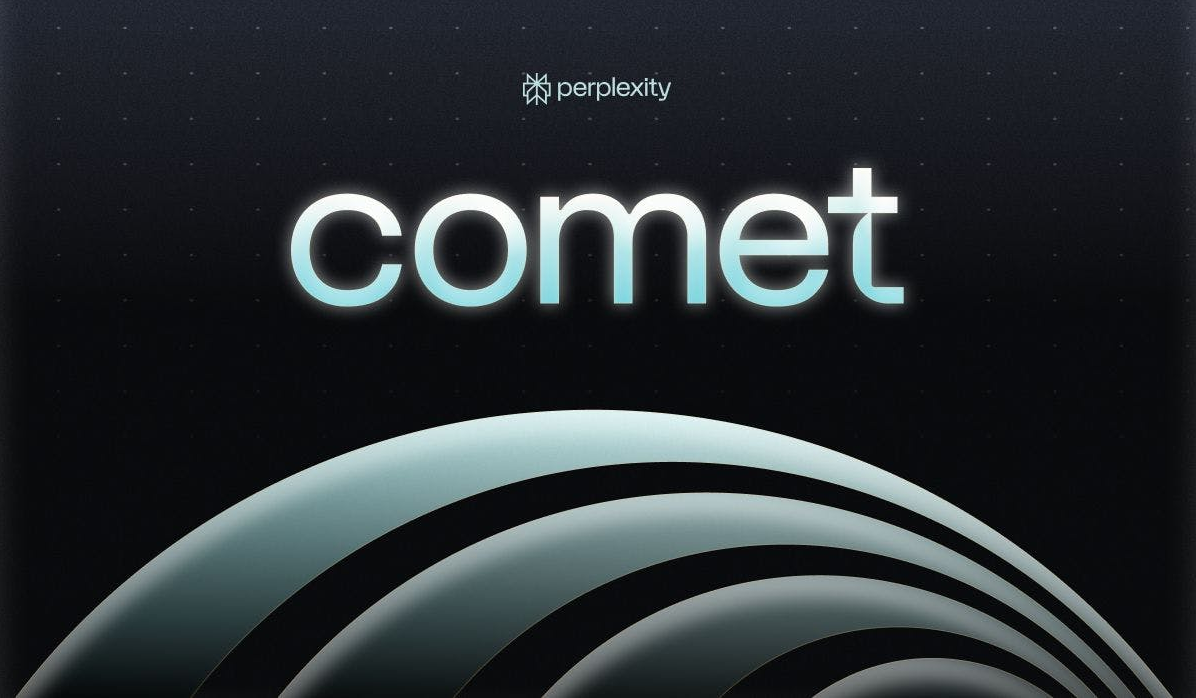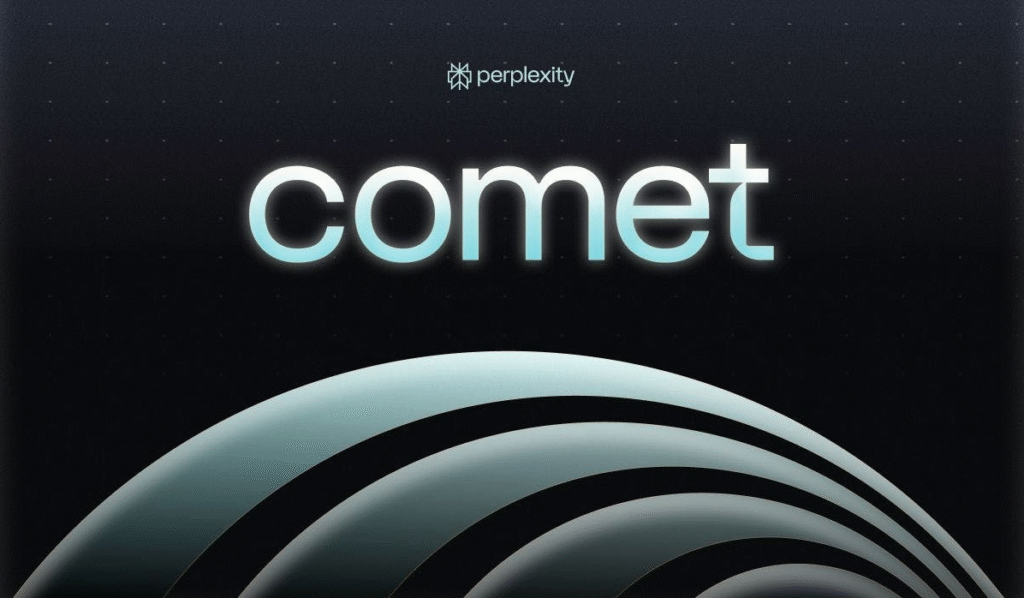
On July 9, 2025, Perplexity AI, backed by heavyweights like Nvidia, Jeff Bezos, and SoftBank, launched Comet, an AI-powered web browser set to challenge Google Chrome’s 68% global market share (StatCounter, June 2025). Available initially to Perplexity Max subscribers ($200/month) and select waitlist invitees, Comet integrates Perplexity’s AI search engine and a powerful Comet Assistant to redefine browsing with task automation, real-time insights, and privacy-focused features. As Google faces antitrust scrutiny and competition from OpenAI’s upcoming AI browser, Comet’s launch marks a pivotal moment in the browser wars. Here’s everything you need to know about Comet, its features, and its potential to reshape web browsing in 2025.
What Is Comet? A New Era of AI-Driven Browsing
Comet, built on Chromium (the open-source foundation of Chrome and Edge), is more than a traditional browser. It’s designed as a “cognitive operating system,” according to Perplexity CEO Aravind Srinivas, aiming to streamline workflows and reduce the clutter of tabs and links. Launched for Mac and Windows, Comet allows seamless import of extensions, bookmarks, and settings, making it easy to switch from Chrome or Safari. Its debut follows Perplexity’s impressive growth, with 780 million queries processed in May 2025 and 20% month-over-month growth, signaling strong user adoption potential.
Key Features of Comet
- AI Search Integration: Comet’s default search engine delivers concise, AI-generated summaries from trusted sources, ideal for research, shopping, or quick answers (e.g., comparing laptop specs across retailers).
- Comet Assistant: A sidebar AI that can summarize emails, manage Google Calendar events, analyze YouTube videos, or interact with social media posts without switching tabs. For example, it can extract insights from a Google Doc or answer questions about a webpage in real-time.
- Task Automation: Handles complex tasks like booking meetings, autofilling forms, or purchasing products, reducing manual navigation. However, early tests note limitations, such as “hallucinations” in complex tasks like booking parking.
- Privacy First: Stores data locally and avoids training AI models on personal information, appealing to users wary of Google’s data-tracking practices. It also includes a native ad blocker, unlike Chrome’s restrictive approach.
- Voice and Text Commands: Supports natural language queries, like “reopen the recipe I viewed yesterday,” enhancing user efficiency.
Challenging Google Chrome’s Dominance
Google Chrome holds a commanding 68% of the global browser market, driving nearly 75% of Alphabet’s ad revenue through user data and default search routing. However, recent antitrust rulings, including a 2024 U.S. decision against Google’s search monopoly and a €4.1 billion EU fine, have weakened its position. Perplexity’s Comet seizes this opportunity by offering an AI-native alternative that bypasses Chrome’s ecosystem. Posts on X, like @FellMentKE’s claim that Comet “thinks for you,” reflect excitement for its intelligent design.
Comet faces competition from other AI browsers, including The Browser Company’s Dia, Brave, and OpenAI’s upcoming browser, set to launch in weeks with ChatGPT-like features. Google itself has integrated AI into Chrome, with Gemini and AI Overviews launched in May 2024, showing the industry’s shift toward AI-driven browsing. Perplexity’s strategic partnerships, such as pre-installing its AI on Motorola Razr phones and talks with Samsung, bolster its challenge against Google’s OEM dominance.

Opportunities and Challenges for Comet
Opportunities
- Growing User Base: With 780 million monthly queries and partnerships with brands like Coinbase for real-time crypto data, Comet could attract early adopters, especially professionals and researchers.
- Privacy Appeal: Local data storage and a native ad blocker position Comet as a privacy-focused alternative to Chrome, resonating with users concerned about data tracking.
- Business Potential: Perplexity plans to introduce ad features in Q4 2025, leveraging user data for personalized ads, a model that could rival Google’s ad empire.
Challenges
- User Adoption: Convincing users to switch from Chrome (66.49%) or Safari (16%) is tough due to default settings and familiarity. Early X feedback notes Comet’s promise but highlights its steep $200/month Max plan as a barrier.
- AI Reliability: Comet Assistant struggles with complex tasks, occasionally producing errors like incorrect booking dates, a common issue among AI agents like OpenAI’s Operator.
- Publisher Disputes: Perplexity faces lawsuits from Forbes, News Corp, and The New York Times for unauthorized content use. Its publisher partnership program aims to address this, but tensions remain.
The Bigger Picture: A Shift to Cognitive Browsing
Comet’s launch aligns with a broader trend toward AI-native browsing, where browsers evolve from navigation tools to proactive assistants. Perplexity’s vision, as Srinivas noted, is to create “an operating system with which you can do almost everything.” This shift could disrupt Google’s ad-driven model, especially if regulators force Chrome’s divestiture. Meanwhile, OpenAI’s browser, backed by former Chrome VPs, and partnerships like Coinbase’s crypto data integration with Comet highlight the competitive landscape.
For users, Comet offers a streamlined, privacy-focused experience, but its success hinges on overcoming AI inaccuracies and winning user trust. For publishers, the challenge is ensuring fair compensation, while advertisers may find new opportunities in Comet’s ad platform. As @heykahn on X exclaimed, Comet’s capabilities are “mind-blowing,” but its $200/month price tag may limit early adoption.
Join the Browser Wars: Will Comet Outshine Chrome?
As Perplexity’s Comet and OpenAI’s upcoming browser challenge Google Chrome, 2025 promises a revolution in how we interact with the web. Can Comet’s AI-driven features sway users from Chrome’s dominance, or will Google’s ecosystem prevail? Share your thoughts in the comments and follow updates on X for the latest tech trends.
For more insights, visit TechCrunch or Reuters.







